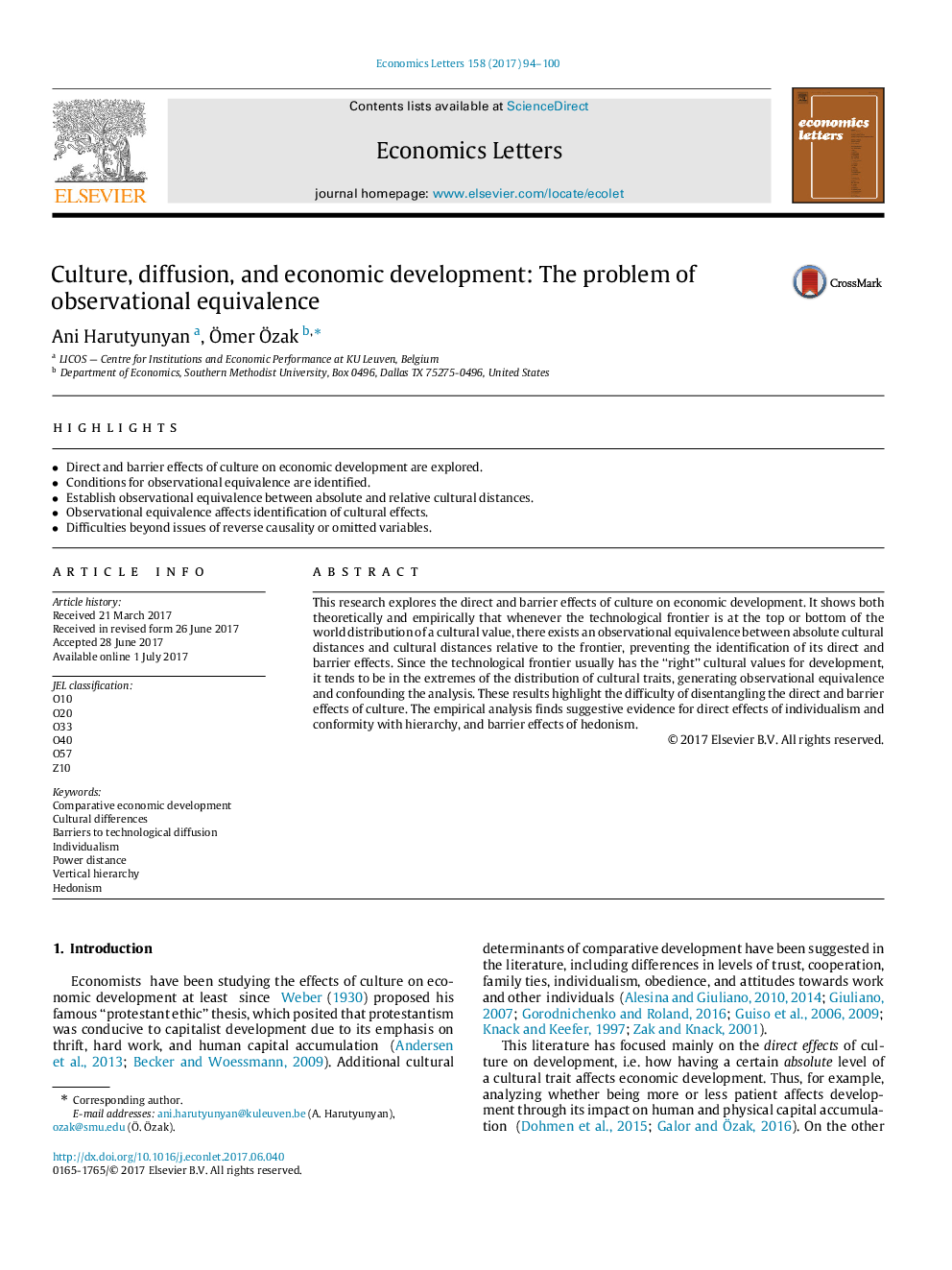| Article ID | Journal | Published Year | Pages | File Type |
|---|---|---|---|---|
| 5057673 | Economics Letters | 2017 | 7 Pages |
â¢Direct and barrier effects of culture on economic development are explored.â¢Conditions for observational equivalence are identified.â¢Establish observational equivalence between absolute and relative cultural distances.â¢Observational equivalence affects identification of cultural effects.â¢Difficulties beyond issues of reverse causality or omitted variables.
This research explores the direct and barrier effects of culture on economic development. It shows both theoretically and empirically that whenever the technological frontier is at the top or bottom of the world distribution of a cultural value, there exists an observational equivalence between absolute cultural distances and cultural distances relative to the frontier, preventing the identification of its direct and barrier effects. Since the technological frontier usually has the “right” cultural values for development, it tends to be in the extremes of the distribution of cultural traits, generating observational equivalence and confounding the analysis. These results highlight the difficulty of disentangling the direct and barrier effects of culture. The empirical analysis finds suggestive evidence for direct effects of individualism and conformity with hierarchy, and barrier effects of hedonism.
